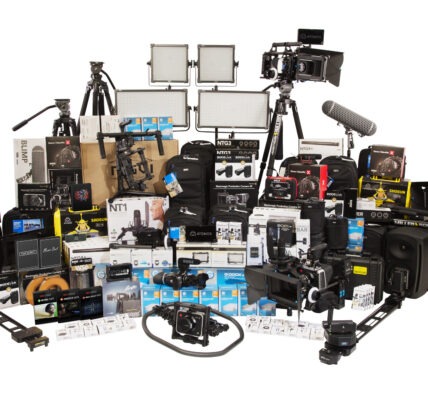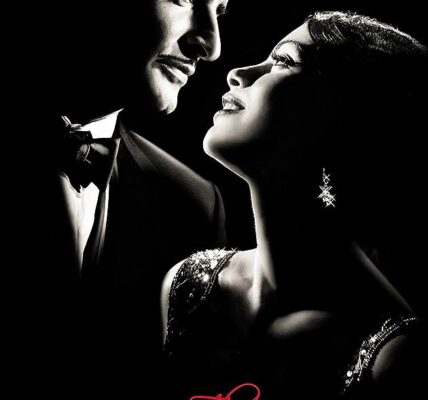As the production company behind the likes of Dead Man’s Shoes, Four Lions, Submarine and Kill List, Warp Films has become a champion of British independent filmmaking. In celebration of its 10th anniversary, the company has released a deluxe limited edition WarpFilms10 Book and DVD set.
The set features exclusive behind the scenes photographs and unreleased archive materials from Warp Films’ projects over the last decade, plus 10 DVDs of key Warp Films productions. There will only be one production run; the first batch sold out, but a second batch is now on sale.

We caught up with Warp Films head and producer Mark Herbert, to chat about 10 years of game-changing filmmaking, and the state of British independent film…
What was your initial vision for Warp Films, and do you think you’ve fulfilled it?
The idea was to give freedom to artists and create artist-driven content. It seemed to us, when Warp Films was first coming together, that there seemed to be an arthouse cinema audience and a mainstream cinema audience; we wanted to make films that crossed over between the two.
The initial idea for Warp Films came from the founders of the Warp Records label, Rob Mitchell and Steve Beckett. They’d worked with pioneering video artists like Chris Cunningham on videos for Aphex Twin and on film scores, as well as releasing the CD of Chris Morris’s Blue Jam radio sketches. We raised the money to do My Wrongs… and it went from there. Paddy Considine was in the lead, and Paddy introduced me to Shane Meadows. A year later, we’re making Dead Man’s Shoes.
You started your career as a location assistant and production manager; did you see / learn anything during those days that helped shape your approach with Warp?
I’d done some running and I met [Brassed Off director] Mark Herman. I think he wanted me on board because I was from near where we ended up filming Brassed Off, and I think there was a level of wanting someone local who could talk to the locals, because some of the people you plop in from film crews into that environment… you know!
I did Brassed Off and then Mark promoted me to full location manager and I did Little Voice with him. Location managing really helped me form my methods of producing, because I used to spend so much time in a car with a director, you’re often one of the first members of crew onboard and you just have this real insight into the early days, often before a film’s financed. Between locations I just spent the time listening to producers and directors and the conversations and the arguments and that helped me form an opinion on the way that I felt was the right way to go about producing.
What’s great about locations is you get to know directors. So the locations side of things gave a good grounding in working with the director early on. Then when you’re on the shoot you get to work really closely with loads of different departments. The locations manager is classically the first on set and the last to leave, so you get to witness first-hand the politics of film. It was a proper on-the-job apprenticeship type training.
You work with many of the same people on different projects; is it an important part of Warp’s ethos to build a creative community?
Definitely. I love putting people together who are like-minded. You bring people together and leave them to it. Our ethos is to support creative talent by putting a structure around them to allow them to do what they’re good at. I’m a big believer in supporting artists and creativity and so we have very different artists. We’ve got an eclectic taste – I’m a cinema lover, as is everybody in this company. So, for us, it’s a case of, if something is exceptional or has something different to say – we’ll back it.
Warp has been behind an eclectic mix of films; what’s more important, creativity or commercial viability? Or do you think they are not mutually exclusive?
The way that I see it is; there’s an art-house and a multiplex but there’s also the middle ground where a Ben Wheatley can make a Kill List or a Shane Meadows can make This Is England, which is beautiful, auteur film-making that has a distinctive voice but at the same time has a market and captures the zeitgeist
As an advocate for British independent filmmaking, do you think the UK industry is doing enough to support our emerging / grassroots talent?
I think we are getting there. Film 4, the BFI and now Creative England have good support for new films makers. I’d like to see more screens available in cinemas for British film and the territorial channels could show more great British films at decent times, therefore educating the audience as well as the talent.

Anyone who gets their hands on Warp’s 10th Anniversary book will be able to indulge in a decade’s worth of fantastic filmmaking, but what has been your personal highlight of the last decade?
The personal one was getting the Bafta with Shane off Stallone for This is England. I remember saying to Shane seconds before they announced ‘come on please, we can meet Rocky’!
I’d also like to say thanks to the team who have put the book together, mainly Niall Shamma and Tommy Husband. I’m really proud of it and it feels we have an essence of all of the Warpfilms team in there. It’s got that scrapbook feel but with a beautiful gloss. And mainly thanks to the filmmakers we have worked with. We are nothing without them.
What is your vision for the future of Warp as you celebrate this milestone?
A big thing for us is nurturing new talent. Look at [producers] Mary [Burke] and Diarmid [Scrimshaw]. Mary was a runner, then a part-time office manager, and worked her way up. It’s important to us to nurture producers; it’s important for the growth of the company that it’s not just about me and Robin [Gutch], it’s also about the up-and-coming producers. You can grow your slate and make more films.
And directors, people like Justin Kurzel (Snowtown). We want to make sure that when a filmmaker goes and makes a film that launches them, we can now say that if they want to do a follow-up film that’s 16, 20, 30 million, we can help them do that, we don’t lose them to the studios. And I’ve got three kids; I want to do a family film!












